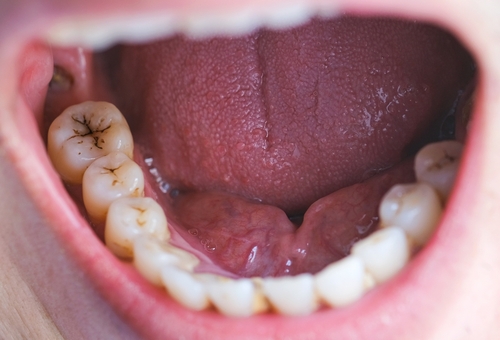
Eating with Braces: Foods to Enjoy and Avoid
December 28, 2023
How To Overcome Dental Anxiety
March 12, 2024Tooth Sensitivity: Reducing Discomfort and Protecting Tooth Enamel

Tooth Sensitivity Reducing Discomfort and Protecting Tooth Enamel
Tooth Sensitivity: Reducing Discomfort and Protecting Tooth Enamel. Tooth sensitivity is a common dental issue that affects many individuals, causing discomfort and pain during daily activities such as eating, drinking, and brushing teeth.
This condition can significantly impact one’s quality of life, making it crucial to understand and manage effectively.
This article provides comprehensive insights into tooth sensitivity, including its causes, preventive measures, treatment options, and home remedies to alleviate discomfort and protect tooth enamel.
Tooth sensitivity occurs when the dentin, the underlying layer of the tooth, becomes exposed due to the erosion of tooth enamel or recession of the gums.
This exposure leads to the stimulation of the nerves within the tooth, causing sharp, transient pain in response to various triggers.
The Importance of Managing Tooth Sensitivity
Table of Contents
Managing tooth sensitivity is essential not only for reducing immediate discomfort but also for preventing potential long-term damage to the teeth.
Effective management helps preserve tooth enamel, maintain oral health, and improve overall quality of life.
The Causes of Tooth Sensitivity

The causes of tooth sensitivity range from lifestyle habits to dental health conditions. Common causes include:
- Erosion of tooth enamel due to acidic foods and beverages.
- Gum recession exposes the tooth’s root surface.
- Grinding or clenching teeth, which wear down enamel.
- Dental procedures or treatments that temporarily affect sensitivity.
The Role of Tooth Enamel in Sensitivity
Tooth enamel is the hard, outer layer of the tooth that protects against physical and chemical damage. When enamel wears down, it exposes the dentin, increasing sensitivity to temperature, sweetness, and acidity.
Common Triggers of Tooth Sensitivity
- Hot and Cold Foods and Beverages: Sudden temperature changes can cause pain and discomfort in sensitive teeth, making it challenging to enjoy hot or cold foods and beverages.
- Sweet and Acidic Foods: Sugary and acidic foods can aggravate tooth sensitivity by contributing to enamel erosion and dentin exposure.
- Dental Health Conditions Leading to Sensitivity: Conditions such as cavities, gum disease, and cracked teeth can increase tooth sensitivity by affecting the integrity of tooth structures.
Preventive Measures

Proper Oral Hygiene Practices
Maintaining good oral hygiene is crucial for preventing conditions that lead to sensitivity. Regular brushing and flossing remove plaque and prevent gum disease.
The Right Way to Brush and Floss
Using a soft-bristled toothbrush and gentle, circular motions can help protect enamel and gums from damage during brushing. Flossing daily helps remove plaque from between teeth and along the gum line.
Choosing the Best Toothbrush and Toothpaste for Sensitive Teeth
Special toothbrushes designed for sensitive teeth and desensitizing toothpaste can provide relief by blocking pathways to the nerves that trigger pain.
Dietary Adjustments to Reduce Sensitivity
- Foods and Drinks to Avoid: Limiting the intake of acidic and sugary foods and drinks can help prevent enamel erosion and reduce sensitivity.
- Nutrients That Strengthen Tooth Enamel: Incorporating foods rich in calcium, phosphate, and vitamin D into your diet can help strengthen tooth enamel and reduce the risk of sensitivity.
Regular dental check-ups allow for the early detection and treatment of issues that could lead to sensitivity, ensuring the maintenance of good oral health.
Treatment Options for Tooth Sensitivity

Over-the-Counter Solutions
- Desensitizing Toothpaste: How It Works: Desensitizing toothpaste contains compounds that help block the transmission of pain signals from the surface of the tooth to the nerve.
- Fluoride Rinses and Gels: Fluoride products can strengthen enamel, reduce sensitivity, and provide relief from discomfort.
Professional Dental Treatments
- Fluoride Treatments: Professional fluoride treatments can strengthen tooth enamel and reduce the permeability of dentin, offering relief from sensitivity.
- Dental Sealants and Fillings: Protecting Exposed Dentin: Sealants and fillings can cover exposed dentin and protect it from external triggers, effectively reducing sensitivity.
For severe cases of sensitivity, more advanced treatments such as root canals may be necessary to address the underlying cause and provide relief.
Home Remedies to Alleviate Tooth Sensitivity
- Salt Water Rinse: Rinsing with salt water can help reduce inflammation and pain associated with tooth sensitivity.
- Clove Oil: Clove oil has natural analgesic properties that can provide temporary relief from tooth sensitivity.
- Coconut Oil Pulling: Coconut oil pulling can help reduce plaque and inflammation, potentially decreasing sensitivity over time.
Lifestyle Adjustments for Long-Term Relief

Managing stress can reduce teeth grinding, a common cause of enamel erosion and sensitivity.
Using mouth guards or splints can protect teeth from the effects of grinding, helping to preserve enamel and reduce sensitivity.
Staying hydrated helps maintain saliva production, which is essential for neutralizing acids and protecting enamel.
Frequently Asked Questions
Can tooth sensitivity go away on its own?
In some cases, tooth sensitivity may improve with proper care and avoidance of triggers. However, persistent sensitivity should be evaluated by a dentist.
How long does it take for desensitizing toothpaste to work?
Desensitizing toothpaste can take several applications over a period of weeks to provide noticeable relief.
Are there any side effects of using fluoride products for sensitivity?
When used as directed, fluoride products are safe and rarely cause side effects. However, excessive use can lead to dental fluorosis.
Can tooth sensitivity indicate a more serious dental problem?
Yes, persistent tooth sensitivity can be a sign of underlying dental issues such as cavities or gum disease and should be evaluated by a dentist.
How can I tell if my tooth sensitivity is due to enamel erosion or gum recession?
A dental examination can determine the cause of sensitivity by identifying signs of enamel erosion or gum recession.
Tooth Sensitivity: Reducing Discomfort and Protecting Tooth Enamel – Conclusion

Tooth sensitivity can be a distressing condition, but with the right knowledge and care, it is manageable.
Adopting proper oral hygiene practices, making dietary adjustments, and seeking professional dental advice are key steps toward reducing discomfort and protecting tooth enamel.
Remember, if sensitivity persists, it is essential to consult a dental professional to identify and treat the underlying cause.
Taking a holistic approach to dental health can provide long-term relief and improve your overall well-being.
If you’re experiencing persistent tooth sensitivity, don’t wait for the discomfort to worsen. Schedule a dental check-up to take the first step towards relief.
Adopting a holistic approach to your dental health is crucial for managing sensitivity and ensuring a healthy, pain-free smile!
Are you seeking a professional and reliable dentist in Singapore? Contact us today!




